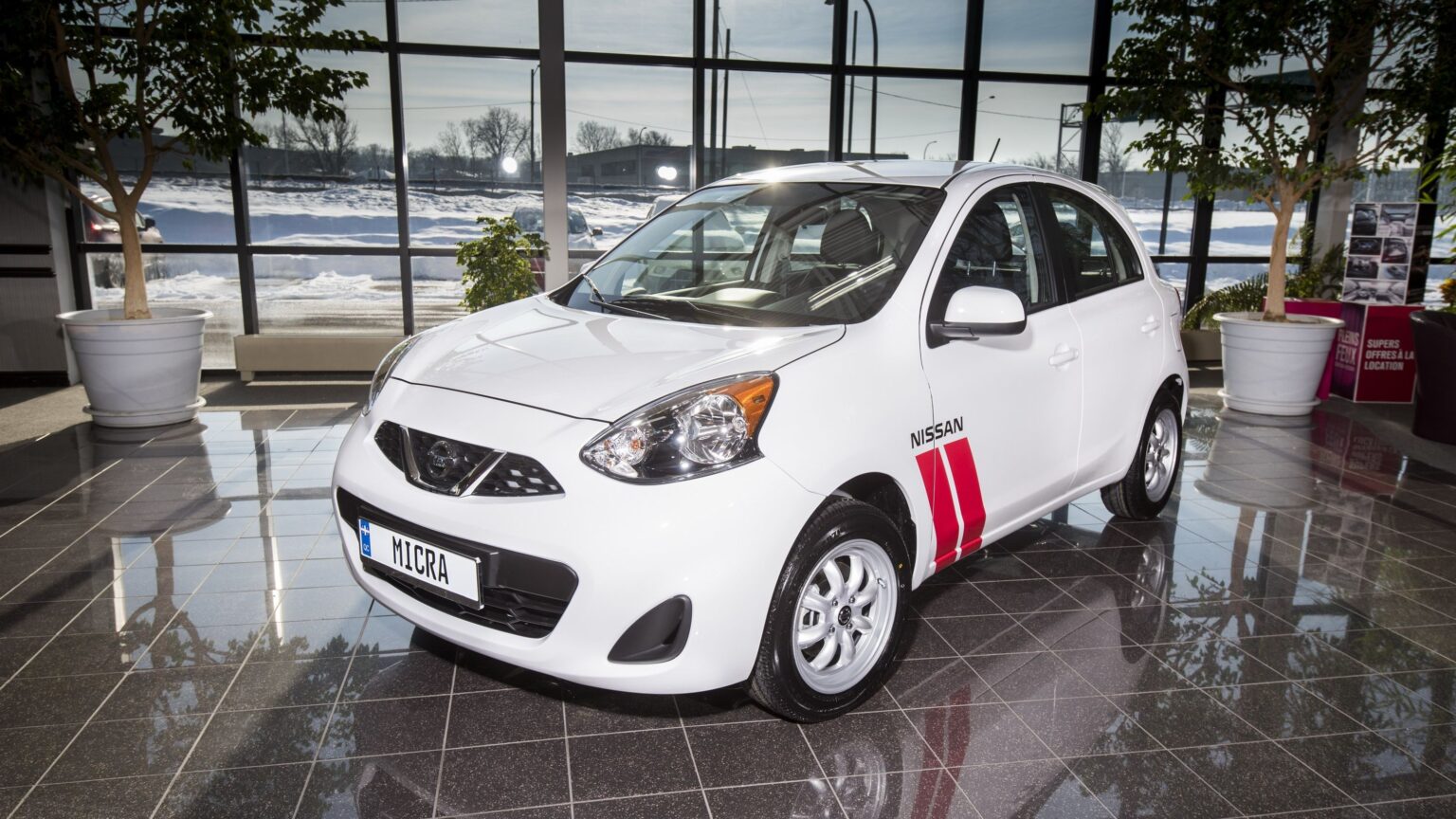While we North Americans are still in love with massive trucks and SUVs, even in the electric vehicle (EV) world, the European auto industry is multiplying its small EV offerings. Mostly motivated by new, more affordable and greater-performance models from China, several of Europe’s largest carmakers have recently announced their intention to bring to market an urban subcompact powered by electric motors.
Fiat already sells the 500e here, and so does MINI with the Cooper SE. But over in Europe, Volkswagen recently revealed the adorable ID.1, Citroën is planning an all-electric C3 minicar, and Renault will release the electric Twingo next year. It also currently sells the hyper-cool Renault 5 E-TECH EV. About that: we just found out that Nissan will rely on its French corporate partner to also manufacture not one, but two small electric urban cars. And one of them will be the adorable Micra.
The Nissan Micra EV Will Be Based On The Renault 5 E-TECH
With Nissan on the verge of self-imploding after its failed attempts at joining forces with Honda, the Japanese giant is more than ever relying on its French counterpart, Renault, to revamp its lineup in the global markets. In a recent report from Automotive News on the matter, we learned that the Renault-Nissan-Mitsubishi Alliance is “still alive and kicking” according to Renault Group CEO Duncan Minto, and that great things are coming from all three automakers.
Nissan, which is currently non-competitive in the EV space, and currently doesn’t sell an electric small car on European soil, will piggyback on Renault’s existing electric architecture to build new EVs.
The Micra is already confirmed as being developed by Ampere, an EV and software company that’s a subsidiary of Renault Group. It will be built alongside the Renault 5 E-TECH in France. But Nissan is also planning a second, smaller EV to take on Europe’s boiling, low-cost microcar segment. That EV will be based on the Renault Twingo electric, which is rumored to sell under the 20,000 euro ($22,000 USD) mark.
- The Nissan EV microcar will use 80-percent Renault parts.
- It will be cost-effective to build.
- It will be affordable to buy.
- It will use LFP batteries.
Furthermore, to take on China Inc., Renault says that the Twingo EV has a 40-percent cut in mineral costs compared with the Renault 5. Actually, the Twingo will only have 750 parts, further reducing production costs, all while relying on more cost-efficient LFP (lithium-ion phosphate) batteries. The Nissan model that will spawn from this will share at least 80-percent of its parts with the Twingo.
The Nissan Micra Was A Huge Hit In Canada, And Could Do Well In The U.S.
The Micra may not mean much to American buyers, but up in Canada, the car enjoyed a pretty successful run as Nissan’s cheapest car. Not only were sales healthy, the car had a joyful driving dynamic that had become non-existent in cars at the time. Nissan Canada even spearheaded a full-on racing series called the Nissan Micra Cup which helped new drivers hoon their skills on the track before moving on to more serious events. The Micra Cup was also loaded with action as these adorable subcompacts would battle it out neck-to-neck on Canada’s racetracks.
Anyway, reviving that car as an EV and putting it against the Fiat 500e and MINI Cooper SE in North America could actually do well for Nissan if the price is right. Especially as the industry faces a slew of Trump tariffs in all shapes and sizes, it’s in everyone’s best interest to lower production costs as well as the price of the car itself to continue doing business in what has become the world’s most complicated automotive market.
TopSpeed’s Take
Microcars may not be everyone’s cup of tea, and they’re definitely not designed for all needs, but there are a lot more car owners out there than we think who could benefit from such a transportation device. The U.S. auto industry has been bathing in excess for far too long, which has led to overly expensive cars, trucks and SUVs that are often loaded with toys and gimmicks that the average buyer will probably never actually use.
This return to form, by offering consumers a back-to-basics EV that fits into a low-mileage daily commute, is perfectly in tune with the Trump administration’s recent claims of needing to cut the fat in its bureaucracy. While not everyone agrees with Elon Musk’s DOGE, or at least, the way it’s being executed, the auto industry could use a bit of DOGE itself. More, all-electric microcars would be a great first step in the right direction.
Read the full article here


